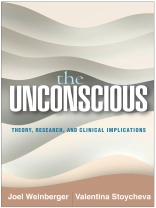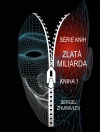Weaving together state-of-the-art research, theory, and clinical insights, this book provides a new understanding of the unconscious and its centrality in human functioning. The authors review heuristics, implicit memory, implicit learning, attribution theory, implicit motivation, automaticity, affective versus cognitive salience, embodied cognition, and clinical theories of unconscious functioning. They integrate this work with cognitive neuroscience views of the mind to create an empirically supported model of the unconscious. Arguing that widely used psychotherapies–including both psychodynamic and cognitive approaches–have not kept pace with current science, the book identifies promising directions for clinical practice.
Winner–American Board and Academy of Psychoanalysis Book Prize (Theory)
Tabla de materias
1. Introduction
I. Early History of the Unconscious
2. Philosophical Precursors
3. Dynamic Psychiatry and Early Academic Psychology
4. Psychoanalysis
II. Empirical Approaches to the Unconscious
5. The Beginnings of Experimental Work on Unconscious Processes
6. Unconscious Processes Move from Outcast to Mainstream
7. Empirical Tests of Unconscious Phenomena: The Effects of Subliminal Exposure
8. Attention Models Bring the Unconscious to the Mainstream
9. Unconscious Processes: From Mainstream to Central Tenet
III. The Unconscious Rediscovered
10. The Normative Unconscious
11. Implicit Memory
12. Implicit Learning
13. Implicit Motivation
14. Automaticity
15. Attribution Theory
16. Affective Primacy
17. From Metaphor to Embodied Cognition
IV. Computational Neuroscience and the Unconscious
18. Computational Models of the Mind
19. Massive Modularity
20. Parallel Distributed Processing
21. From Exaptation to Neural Reuse
22. A Model of the Unconscious: Theory and Implications for Psychotherapy
Glossary
References
Index
Sobre el autor
Joel Weinberger, Ph D, is Professor in the Derner School of Psychology at Adelphi University. He is a Fellow of the Association for Psychological Science and of the American Psychological Association. His research on unconscious processes has been recognized with the Ulf Kragh Award from the University of Lundh, Sweden. Author or coauthor of approximately 100 publications, Dr. Weinberger is a founder of Implicit Strategies, which consults for political campaigns, nonprofits, and businesses. His political and business commentaries have appeared in the national media. He is also a practicing clinical psychologist.
Valentina Stoycheva, Ph D, is a staff psychologist at Northwell Health in Bay Shore, New York, where she works with military service members, veterans, and their families. She is also a cofounder and director of Stress and Trauma Evaluation and Psychological Services (STEPS), a group practice that focuses on the integrative treatment of trauma. Dr. Stoycheva has taught undergraduate- and graduate-level courses and has contributed to over a dozen publications and presentations in the fields of trauma, family dynamics, and the psychotherapy process. In 2018, she was named one of Adelphi University’s 10 Under 10 outstanding young alumni.












